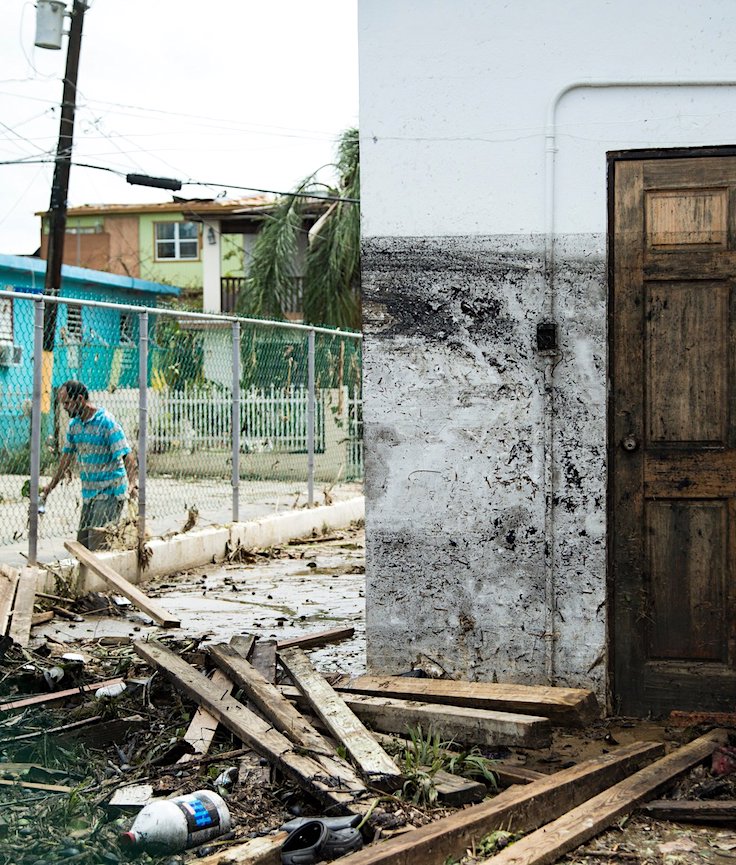[dropcap]TOA[/dropcap] BAJA, P.R. — Everywhere they looked there was water. It swept in from the ocean to the north. And it surged toward them from overflowing rivers to the south. Hurricane Maria’s wrath left residents in this coastal town trapped by water.
Entire neighborhoods were submerged and some people were swept away in the surge, residents recounted on Friday.
When the waters began rushing in two days before, Laura Hernandez evacuated her home and huddled in the second floor of a neighbor’s house with several dozen other residents. Two of them were bedridden. From there, she saw her house flood until she could only see the roof. Other residents stood on their own roofs, stranded among the rushing currents of murky water. [mc4wp_form id=”6042″]
“This is something never before seen,” said Ms. Hernandez, 48, a resident of the Barrio Ingenio neighborhood, adding, “The water came out of nowhere.”
 AP Photo/Johnny Jno-Baptist, Photo Credit
AP Photo/Johnny Jno-Baptist, Photo Credit

 AP Photo/Carlos Giusti, Photo Credit
AP Photo/Carlos Giusti, Photo Credit
 Erika P. Rodriguez for The New York Times, Photo Credit
Erika P. Rodriguez for The New York Times, Photo Credit
NATIONAL MUSEUM OF AFRICAN AMERICAN HISTORY & CULTURE | WASHINGTON, DC
The National Museum of African American History and Culture is the only national museum devoted exclusively to the documentation of African American life, history, and culture. It was established by Act of Congress in 2003, following decades of efforts to promote and highlight the contributions of African Americans. To date, the Museum has collected more than 36,000 artifacts and nearly 100,000 individuals have become charter members. The Museum opened to the public on September 24, 2016, as the 19th and newest museum of the Smithsonian Institution. (Website).


You must be logged in to post a comment.